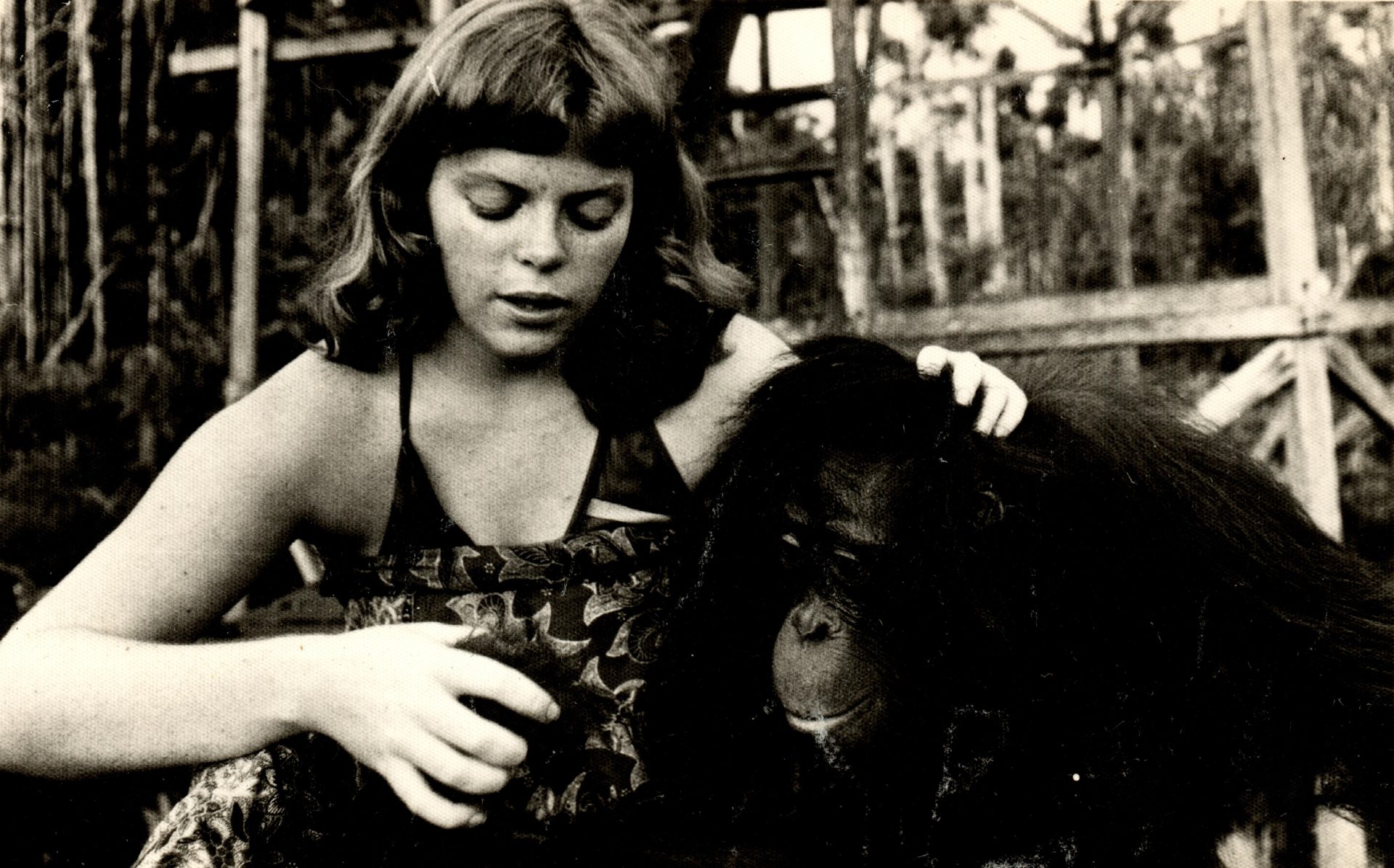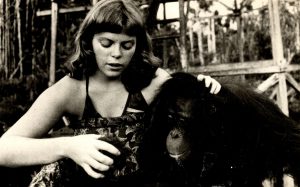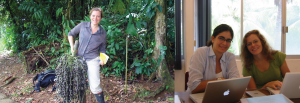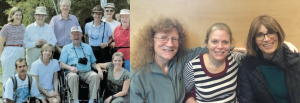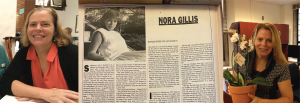On November 15, the Organization for Tropical Studies (OTS) honored Dr. Nora Bynum by creating the Dr. Nora Bynum Fund for Inclusion. She’s a fitting recipient of this recognition, given her dedication to conservation education and research over the past 30 years.
Bynum received her doctorate degree from Yale University’s joint program in Anthropology and their School of Forestry and Environmental Studies, and she was a leader in the Sulawesi Primate Project. Throughout her career, Bynum invested in educating the next generation of conservation scientists by creating innovative courses and worldwide education programs. She was also a pioneer in evaluating education efforts.
Her work took her to over 10 countries for professional opportunities, including to Vietnam, Peru, Rwanda, and Madagascar to develop programs, Mexico to work as a García-Robles Fulbright lecturer, and China to spearhead the development of Duke Kunshan University’s campus.
She’s had quite the adventurous career for someone who didn’t even like camping as a child. When Bynum told her dad she hoped to pursue a career in conservation, he reacted in disbelief.
“I think everybody was pretty shocked when I decided to go into conservation and then tried to go into graduate school,” she said.
Bynum, too, had her moments of uncertainty about her career choice during long field days while she was working on her dissertation. But she learned discovery was on the other side of her doubt.
“That kind of solitude, it changes you,” she said.
For three decades, Bynum has provided students with similar opportunities to experience how conservation research and field work can change them – and the planet – for the better, beginning in 1996 when she was a Visiting Assistant Professor at the University of the South.
She recalls solidifying her love for education while working on a collaborative course with faculty at the University of the South that brought together plant ecology, zoology, and conservation.
But she didn’t have long to build upon this course; Bynum had accepted an exciting new job at OTS in 1998 where she would be Academic Director.
Early career contributions at OTS
When Bynum arrived at La Selva Research Station, she wasn’t sure what to expect. She didn’t speak Spanish. Her research expertise was rooted in Asia. But she loved education and was ready to work hard.
“It was a little bit intimidating. I remember coming into the comedor [dining hall] at La Selva, where we all ate, and there were about 50 faces looking at me, expecting me to have something intelligent to say,” Bynum said. “We began a conversation about OTS, and I was struck by the degree of depth of commitment they had for OTS and the New World tropics.”
It didn’t take long for Bynum to immerse herself in her new position. She began learning Spanish and strategizing about how to bolster OTS’ academic offerings. Even in these early days as Academic Director, Bynum said she knew her involvement with OTS would be lifelong.
Under Bynum’s direction, OTS established the undergraduate semester program and implemented a variety of new courses, including the joint Spanish-English Tropical Biology course, which served as a valuable foundation for future bilingual courses. “Nora jumped in and wowed everybody’s socks off,” said Dr. Deedra McClearn, OTS Consultant on Science and Research.
She created offerings that allowed students to learn in the field, such as the Advanced Comparative Tropical Ecology course (also known as the “Four Forests” course) – a graduate course, which was taught by iconic Tropical Biologist Dr. Gordon Orions, where students created collaborative research efforts after visiting four tropical forests. Kyle Harms, an alumnus of the “Four Forests” course, said this course had a lasting impact for students.
“Although I think most of us on the OTS “Four Forests” course had already committed ourselves to lifelong academic pursuits in ecology or evolutionary biology, as well as some degree of on-going tropical work, the course substantially broadened all of our first-hand perspectives on the similarities and differences among tropical forest regions, instilled in most us an enduring interest in geographically comparative biology, and created our own group of lifelong friends and collaborators,” Harms said.
Across these courses, Bynum was struck by OTS students’ talent and dedication.
“It was wonderful seeing the development of students from different countries and the ways that they looked to make a commitment and contribution to their own countries,” Bynum said.
As Bynum settled into her first OTS position, she propelled larger educational efforts forward, including guiding the creation of the South Africa undergraduate program, which required a level-headed leader who could stay calm and focused in ‘high stakes’ meetings. The OTS South Africa program has been a resounding success, in its 20th year of running with Dr. Laurence Kruger currently at the helm.
“I had never had such an exciting job as my OTS job, and never a job that involved so many different people and so many different contexts at the same time being present in the field,” she said.
Bynum served as OTS’ Academic Director for four years. Soon, other positions across the world came calling for her – and Bynum was one to say yes.
Guiding education programs around the world
For years, conservation scientists intuited the value of bringing students out to the field, but there was less of a focus on evaluating why this style of education was working.
In her mid-career, Bynum began to help fill this gap in understanding, pivoting her focus to evaluating how experiential learning can change students and enhance their education. Working at the American Museum of Natural History (AMNH), including as the Project Director for the Network of Conservation Educators and Practitioners, Bynum established herself as an expert in educational program evaluation.
While working at AMNH, Bynum was also active in academia, teaching both undergraduate and graduate students with a focus on mentoring and supporting these students. She held a variety of roles at her undergraduate alma mater, Duke University, including as an adjunct instructor in the Nicholas School of the Environment and Associate Vice Provost for Global Strategy and Programs.
In her most recent role with Duke, Bynum was the Vice Provost for Duke Kunshan University (DKU) and China Initiatives. She helped lead the creation of DKU from the ground up – taking 28 trips to China over 4 years.
“The lesson from that time is to never stop smiling and never stop building,” she said.
It’s a motto Bynum followed in other threads of her career, including at the Amazon Center for Environmental Education and Research (ACEER) where Bynum helped build educational programs for teachers and students.
Nora has been a major driver of ACEER since the 1990s having served on the Board of Directors for over 20 years before stepping off in December 2023. She served as Executive Director at a time when ACEER critically needed her leadership and recently served as Director of Education, leading strategically important program assessments of ACEER’s educational programs in Peru. During her tenure, she secured new board members, most notably Malcolm Gillis, Chris Davidson, Tom Lovejoy, and members of ACEER’s Science and Education Advisory Committee which she also chaired for years. She was successful in securing over $100,000 in support, and catalyzed strategic partnerships, including a long–standing collaboration with the Organization for Tropical Studies, with whom we collaborated for nearly a decade on graduate– level education in Peru on rainforest ecology and conservation,” said Dr. Roger Mustalish, Chair of the Board at ACEER.
While at ACEER, Bynum collaborated with OTS on graduate– level courses – following the adage to make new friends, but keep the old – and it wasn’t long until her career brought her right back to OTS.
Making a difference closer to home
Bynum may have held many different positions – some concurrently – but she never fully left OTS. She contributed to the organization in a variety of ways, including as a member-at-large on the Board of Directors, Institutional Representative (on behalf of Duke University), and most recently as the Dean of Academic Programs.
“OTS has always been about change, and Nora was instrumental during many of those times of change – guiding things in her magic way,” McClearn said. A big moment of change for OTS – and the rest of the world – was when Covid-19 shifted how workplaces functioned. Bynum’s leadership skills were on unique display as she invested in cultivating internal camaraderie.
“I tried to use this time to further develop our relationships among ourselves and to hone our tools by allowing space for people to get to know each other, because we were a very disparate staff from all over the world and all over the disciplines,” she said.
Her efforts haven’t gone unnoticed. Multiple OTS staff members conveyed that Bynum has helped “remove barriers” so that they could collaborate and do their best work. She invested in OTS staff in the midst of her own challenging health diagnosis.
“I feel very grateful that I have been able to continue working more than 10 years into my diagnosis, and the reason mainly that I can do that is because the OTS administration made it possible for me to do so. I am forever grateful for this and also the support of my family who were also very understanding and helped me in many ways,” Bynum said.
As Bynum reflects on her career, from adventures in remote areas across the world to navigating Covid-19 with the OTS staff, she encourages young scientists to stay grounded and hopeful.
“I think that the most important thing that I could pass onto others is an idea that nothing is forever, but if you work really hard, you can change the context that you’re working in, and that’s the most important thing you can do,” Bynum said.
Please use this link if you wish to make a contribution toward the Dr. Nora Bynum Fund for Inclusion.
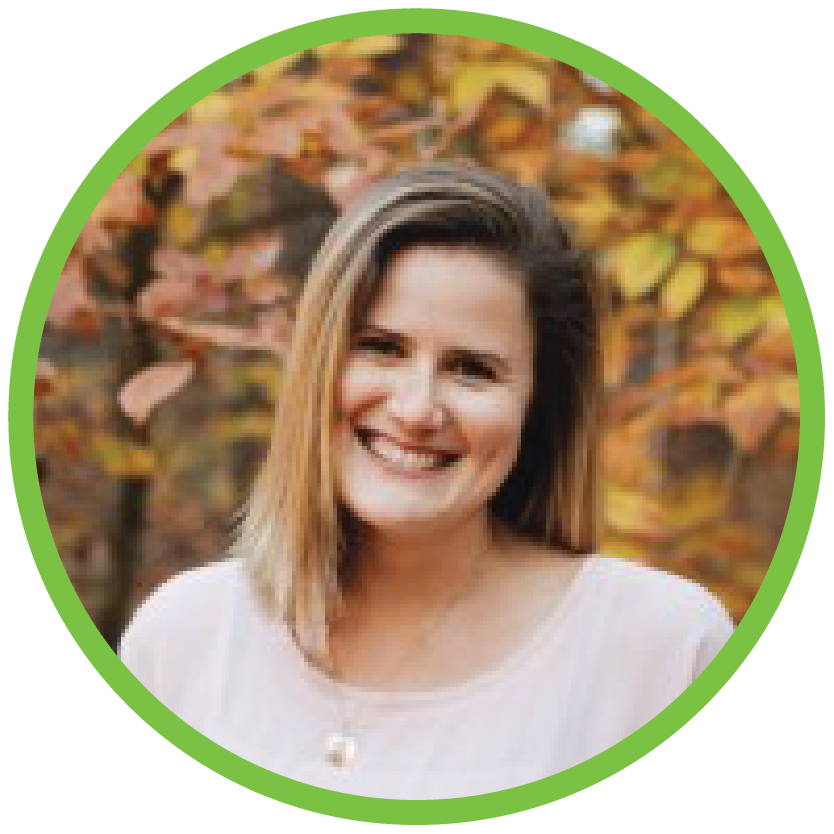
About the author
Rachel Damiani is a freelance science writer and the founder of Ecotone Science Writing & Photography, LLC. She received her Ph.D. in communication, M.A. in mass communication with a concentration in science/health, and B.S. in biology from the University of Florida. Prior to opening her business, Rachel worked as a science communications specialist for a large university and a research assistant in multiple biology laboratories. Her sole and co-authored work has been published in a variety of outlets, from the Washington Post to Ecology. As a freelance science writer with the Organization for Tropical Studies, Rachel enjoys collaborating with OTS staff, interviewing scientists and students from around the world, and telling stories about their fascinating research.

